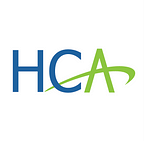Supporting youth grieving an overdose loss
Providing support for youth and young adults in the wake of losing a person to opioids is vital, and it may not look the same as other kinds of grief or healing. Taking action and offering resources can help mitigate immediate and long-term effects.
Helping youth and young adults after they lose a loved one can feel complicated, overwhelming, and stressful. When that loss is combined with the trauma of a substance use disorder and the complexity of watching a friend or peer experience it, providing support can be difficult to navigate.
How to show you’re available
Set reminders for support groups, counselors, and peer groups to check in.
Youth will carry this loss with them in one way or another for the rest of their lives. Continue providing support beyond the initial weeks and months. Simple check-ins will help build a trusting relationship that the youth may need for the long term.
Anticipate triggers like anniversaries, birthdays and special moments in the youth’s life where they will feel especially burdened by loss. If someone else in the community dies as a result of an overdose, think of how that could retraumatize a youth who’s already experienced a similar loss.
Give youth the opportunity to remember the person they’ve lost. Having a space to share memories, celebrate their life or carry something with them will show them that this person won’t be forgotten.
Take care of yourself
You are the biggest influence for your child. It’s important to model and normalize seeking support from others, including professionals.
Adults may need support themselves. Adults can reach out to local programs that provide support, resources, and assistance. These can often be found by contacting your local school, provider, community center, faith-based organizations, or grief groups.
Stay connected. Checking in with people who are close to you is a great way to stay connected. Talking through the things what weigh on you — no matter how big or small — can brighten someone’s day.
How educators can help
Provide extra teaching support for all students immediately through tutoring, extended deadlines and office hours with teachers. Waiting until grief manifests in their schoolwork can only compound the stress of students.
As a teacher, explain what substance use disorder is and how it can be prevented.
Let students ask questions about substance use, what it means and why people experience substance use disorder.
Encourage adults to talk with the kids about opioid overdose. Adults can educate youth about how to respond to an overdose with the use of Naloxone. Whether it is a loved one or coming to the aid of a stranger everyone can save a life. Talking through an action plan can help adults and youth feel safe, empowered and prepared.
Resources
For resources on prevention services and to get involved with a local prevention coalition, please visit The Athena Forum (TheAthenaForum.org)
For information on opioid prevention messaging and resources to educate loved ones, visit Starts with One (GetTheFactsRX.com/conversation-starters)
To learn about the risks of underaged use of alcohol, marijuana and other drugs, and how to help your children make healthy choices, visit StartTalkingNow.org
To help communities respond to overdose, visit StopOverdose.org
For anonymous and confidential emotional support that can connect callers with local treatment resources or community services, visit Washington Recovery Helpline (WaRecoveryHelpline.org)
If you or a loved one are suffering a behavioral health crisis, or simply need someone to talk to and aren’t sure where to start, call or text 988 from any phone for free, confidential, safe support from a trained counselor and get connected to resources in your area. Learn more at 988lifeline.org.
